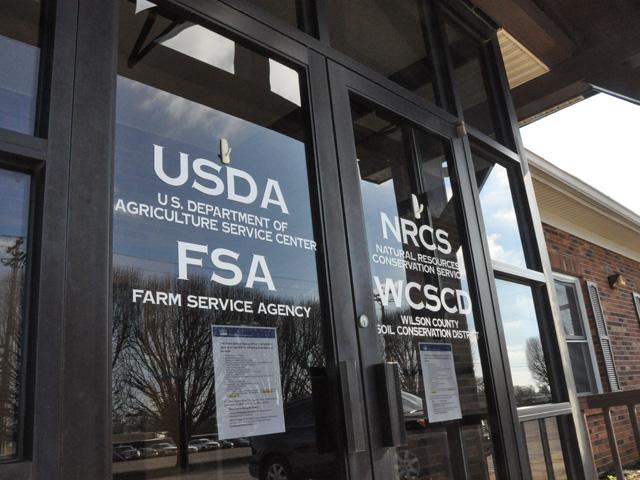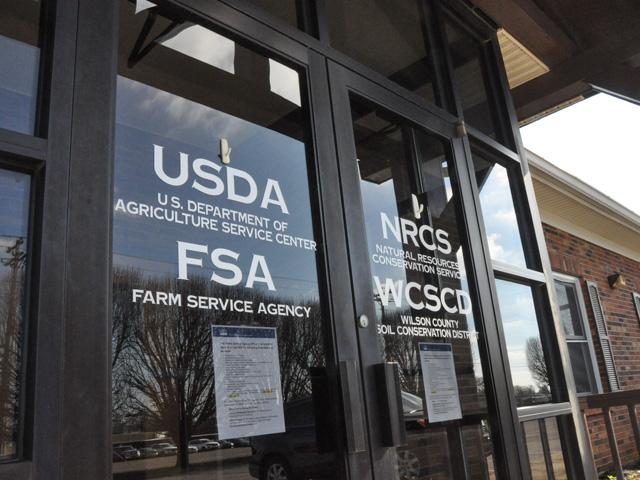Ag Policy Blog
Farm Loans, Argentina Trade, Biofuel Policies and Terms That Got USDA Grants Canceled
The email inbox can quickly fill up. Here are some announcements and news releases involving a range of policy issues including FSA reopening and President Trump signing agreements with Argentina, Guatemala, El Salvador and Ecuador. The group FarmSTAND also released some details about its lawsuit against USDA over canceled grants.
FSA LOANS FULLY OPEN FOR BUSINESS
The Farm Service Agency on Thursday issued a notice that all loan servicing activities can resume at local offices.
Offices will now start processing all new loan requests received after Sept. 30.
The agency's memo to staff stated no applicant will be penalized because of the lapse in funding.
At the same time, farmers who were reaching the maximum number of years they can participate in that loan program -- term limits -- were not extended for farmers. If a farmer reached that point during the shutdown, FSA will not process their loan. The FSA guidance states, "Term limits cannot be extended for any reason. If a loan could not be closed before the restoration of funding and closing the loan after the restoration of funding will put the applicant over a term limit, then the applicant is not eligible to receive the loan even if it was approved and obligated before the lapse in funding."
When it comes to loan delinquency, farmers who had payments due between Oct. 1 and Nov. 12 will be considered 90 days past due on Feb. 11, 2026.
AGREEMENTS WITH ARGENTINA, GUATEMALA, EL SALVADOR, ECUADOR
President Trump on Thursday announced trade agreements with Argentina, Guatemala, El Salvador and Ecuador that apparently could lead to easier imports of beef from Argentina and other products from Guatemala, El Salvador and Ecuador.
The announcement on trade with Argentina states, "the countries have committed to improved, reciprocal, bilateral market access conditions for trade in beef."
It also states, "Argentina has opened its market to U.S. live cattle, committed to allow market access for U.S. poultry within one year, and agreed not to restrict market access for products that use certain cheese and meat terms."
"Argentina will simplify product registration processes for U.S. beef, beef products, beef offal, and pork products, and will not apply facility registration for imports of U.S. dairy products, the announcement says.
P[L1] D[0x0] M[300x250] OOP[F] ADUNIT[] T[]
"The United States and Argentina intend to work together to address non-tariff barriers affecting trade in food and agricultural products."
Trump has previously said he wants to increase imports of Argentine beef in order to lower consumer prices in the United States. That position has angered the U.S. cattle industry, but Agriculture Secretary Brooke Rollins has said the biggest impact would be in the price of hamburger rather than more expensive cuts.
The exact impact of Thursday's announcement is unclear.
The White House released individual statements on each agreement. Although the price of coffee has become a flash point among grocery shoppers, the agreements today did not include Brazil, the biggest provider of coffee to the United States.
Link to Argentina details:
OILSEED GROUPS URGE TRUMP TO FINALIZE BIOFUEL POLICIES
The National Oilseed Processors Association (NOPA) and the American Soybean Association (ASA) on Wednesday sent a joint letter to President Trump, urging the administration to finish biofuel policies that they said "strengthen domestic energy production, promote the use of U.S.-grown soybean oil, and ensure that federal programs prioritize American feedstocks over imports."
In the letter, the groups called on the administration to finalize policies that expand domestic biofuel production, include strong volumes for biomass-based diesel (BBD) in the Renewable Fuel Standard (RFS), and limit the generation of RFS credits for foreign feedstocks and biofuels.
They also highlighted the importance of the Treasury Department finalizing guidance for the 45Z Clean Fuel Production Credit.
"We greatly appreciate the president's efforts to restore export markets and expand opportunities for American soy and meal," said Devin Mogler, president and CEO of NOPA.
"Reducing credits for imported feedstocks is an America First policy that ensures U.S. farmers and processors, not foreign competitors, are the first to benefit from America's growing biofuel production. We've invested billions to expand crush capacity to add value to the soybeans our great farmers produce right here at home," Mogler said.
"Finalizing these biofuel policies before the end of the year -- including strong BBD volumes, timely 45Z guidance, and the import-RIN -- will keep those jobs, investments and opportunities in rural America where they belong."
There have been reports that biofuels leaders were scheduled to meet with Agriculture Secretary Brooke Rollins at the White House today, but industry officials declined to comment on the meeting and USDA did not respond to a request for comment.
GROUP HIGHLIGHTS USDA MEMOS ON CANCELED GRANTS
FarmSTAND, a group advocating against consolidated corporate control in the food system, published USDA documents the Trump administration used to determine if grants had a goal to establish diversity, equity and inclusion to make decisions about whether to continue the grants.
FarmSTAND had sued USDA and DOGE over grant cancelations along with Earthjustice and the Farmers Justice Center. The group noted, "we had good reason to believe that the government hadn't spent nearly as much time deciding which grants to cancel and instead hastily and unlawfully terminated hundreds of grants without individualized consideration. One big clue was that the cancellation notices were clearly from a template used en masse. Some even had the file name 'Full Termination Letter Template.'"
The groups won $34 million in relief for plaintiffs over canceled grants but also continued to argue about the broader policy of 600 grant terminations being unlawful. That forced the government to show its work, which included a trove of documents.
In early 2025, the Trump administration issued a series of executive orders targeting DEI, climate, and environmental justice initiatives. Soon after, USDA officials issued a memo directing staff to identify and eliminate activities that it considered "DEI," including anything to do with environmental justice, underrepresented producers, and socially disadvantaged producers, and even "gender preferences."
Those terms effectively put all of those grants and projects on the chopping block.
Shortly later, Agriculture Secretary Brooke Rollins expanded the list to add any efforts related to climate change in a directive to NRCS to "establish a return to American principles." Fifteen climate and environmental terms were added to the list of grants to be canceled. Any grants involving climate modeling, greenhouse gas emissions, and climate-smart agriculture were affected.
Jerry Hagstrom can be reached at jhagstrom@nationaljournal.com
Follow him on social platform X @hagstromreport
Chris Clayton can be reached at Chris.Clayton@dtn.com
(c) Copyright 2025 DTN, LLC. All rights reserved.






Comments
To comment, please Log In or Join our Community .